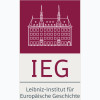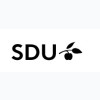Elevate your career or find the perfect candidate to contribute to the evolving landscape of digital interculturality.
Sessional Lecture in Digital Culture and Society (only for residents/citizens CANADA)
deadline: 25.02.2026
Job
University of Toronto Mississauga (UTM)
Course description: Digital culture explores the intersections of human culture and digital technology. How do digital technologies – including the internet and social media – shape identity, groups, and institutions? How do they shape our interactions, experiences, and practices? What kinds of shifts have we seen over time in the interrelationship between digital culture and society? Estimated course enrolment: 150 Estimated TA support: 180 hours (subject to enrolment) Class schedule (Lectures): Mondays & Wednedsays 1 - 3pm (Online)
Sessional Lecture - SOC345H5F: Special Topics in Sociology (only residents/citizens CANADA)
deadline: 25.02.2026
Job
University of Toronto Mississauga (UTM)
Course description: This course will explore a particular area within sociology. Topics vary from year to year and are noted on the timetable once confirmed. Estimated course enrolment: 60 Estimated TA support: 90 hours (subject to enrolment) Class schedule (Lectures): Tuesdays & Thursdays 7 - 9pm (Online) Candidates must have a PhD in Sociology or equivalent as demonstrated by refereed/published research, strong academic record, previous experience teaching a similar course, and evidence of teaching excellence in the subject covered in the course. Applicants must include a description of the topic and the approach they would take for the course they are proposing
Referent*in Digital Fundraising/Marketing - SOS MEDITERRANEE
deadline: 25.02.2026
Job
SOS MEDITERRANEE
Gesucht wird einen Referentin Digital Fundraising/Marketing zur Verstärkung des Fundraising‑Teams. Aufgaben: Planung und Umsetzung digitaler Cross‑Channel‑Fundraisingkampagnen zur Gewinnung von Einmal‑ und Dauerspender*innen; Weiterentwicklung des E‑Mail‑Programms (Newsletter, Kampagnen, Automatisierungen); Steuerung von Performance‑Werbung (Meta, Google u.a.) für Lead‑Generierung und Spendenakquise; regelmäßiges Reporting und Performance‑Analyse für Stakeholder; Management externer Agenturen, Freelancer und Dienstleister; kontinuierliche Erfolgskontrolle und Budgetüberwachung. Weitere Aufgaben können hinzukommen.
Lecturer in Emerging Digital Technologies
deadline: 26.02.2026
Job
London College of Communication
The Design School is looking to recruit a Lecturer for the MA Design Management course. The course explores the strategic and cultural value of design theory and practice in the context of diverse organisations. It incorporates design production, process, facilitation, and strategy to tackle social and global challenges and prompt entrepreneurial innovation.
Werkstudent/in digitale Kommunikation und Marketing
deadline: 28.02.2026
Job
SIETAR Deutschland e.V.
SIETAR Deutschland e. V. sucht Dich als studentische Hilfskraft für digitale Kommunikation und Marketing ab März 2026! SIETAR Deutschland e. V. (Society for Intercultural Education, Training and Research) ist der bundesweit größte Verein für Personen, die auf dem Gebiet der interkulturellen Zusammenarbeit und der kulturellen Diversität tätig sind. Aktuell hat der Verein gut 400 Mitglieder. SIETAR Deutschland ist Kontaktplattform, Austauschforum und Kooperationspartner für Interkulturalist:innen in Politik, öffentlicher Verwaltung, Gesundheits- und Sozialwesen und in Wirtschaftsunternehmen. Sie arbeiten als Berater:innen, Trainer:innen und Coaches, als Forscher:innen oder Lehrbeauftragte zu interkulturellen Themen. Durch regelmäßige Veranstaltungen, Publikationen und regionale sowie themenspezifische Arbeitsgruppen bietet SIETAR Deutschland seinen Mitgliedern einen Treffpunkt zum Austausch von Konzeptionen und Handlungsweisen für interkulturelle Kommunikation, Kooperation und Konfliktlösung. Die Arbeit von SIETAR Deutschland ist eingebunden in das europäische und das internationale Netzwerk von SIETAR-Organisationen. SIETAR wurde 1968 in den USA gegründet und ist heute mit rund 3000 Mitgliedern das weltweit größte Netzwerk seiner Art.
Professur (W2) für Kommunikationswissenschaft mit dem Schwerpunkt politische Kommunikation und Medienwandel (mit Tenure Track auf W3)
deadline: 05.03.2026
Job
Technische Universität Dresden (TUD) / Prof. Dr. Dominik Schrage / Prof. Dr. Sven Engesser
Aufgaben der Professur Die Professur vertritt die Kommunikationswissenschaft in Forschung und Lehre in ihrer Breite. Forschungsschwerpunkt ist politische Kommunikation und Medienwandel. Im Zentrum dieses Schwerpunkts steht die Analyse von Akteursstrategien, Kommunikationsstrukturen, Medieninhalten, öffentlichen Diskursen und/oder Rezeptionsverhalten unter veränderten medialen Bedingungen und den Folgen dieses Wandels für demokratische Prozesse und gesellschaftliche Teilhabe. Ein weiterer Schwerpunkt liegt auf Computational Communication Research, verstanden als die Erforschung von Kommunikationsprozessen, die durch große Datenmengen, algorithmische Strukturen und KI-basierte Anwendungen geprägt sind. Dies schließt insbesondere die Anwendung und Weiterentwicklung computergestützter Methoden ein. Beide Schwerpunkte sollen anschlussfähig sein an den zukünftigen Potenzialbereich "Transformation und Demokratie" der TUD. Die Professur ist interdisziplinär ausgerichtet und international vernetzt. In der Lehre ist sie in die Bachelor- und Masterstudiengänge der Kommunikationswissenschaft eingebunden und beteiligt sich aktiv an der Weiterentwicklung des Masterstudiengangs "Angewandte Medienforschung". Zu den Aufgaben in der Lehre gehören auch die Betreuung von studentischen Abschlussarbeiten und Dissertationen. Die Professur wirkt aktiv in der akademischen Selbstverwaltung und den universitären Gremien mit.

Research associate Digitality of Historical Research
deadline: 09.03.2026
Job
Leibniz Institute of European History (IEG)
The contract is fixed-term and limited to a maximum of five years. Key responsibilities: ◘ Conducting an individual research project in the field of European history since c. 1500 with a strong emphasis on digital tools and methods. We particularly welcome comparative and cross-border perspectives on the social, religious, cultural, or environmental history of Europe ◘ Participation in the development of the IEG’s research agenda through publications and research activities ◘ Consulting academic staff and guests of the IEG on the conception and application of digital tools and methods ◘ Taking on cross-sectional tasks in the DH Lab team at the interface of historical research and digital technologies ◘ Participation in the enhancement of digital research infrastructures and in the design of innovative research projects in regional, national, and European networks ◘ Collaboration in the Mainz Centre for Digitality in the Humanities and Cultural Studies (mainzed) and teaching within the MA programme »Digital Methodology«
Lecturer in Education
deadline: 10.03.2026
Job
University College Cork
Permanent Whole Time Post Lecturer (Below the Bar) in Education, (Literacy, Numeracy & Inclusion) University College Cork wishes to appoint an experienced academic to the role of Lecturer (below bar) in Education. The post requires expertise in the History/ Sociology/ Psychology/ Philosophy of Education. It has an emphasis on providing pastoral support to education students, with a particular focus on supporting the diversification of the teaching workforce. Reporting to the Head of School the appointee will be expected to contribute to teaching, assessment, school placement, and programme development and administration at undergraduate and postgraduate levels. They will be expected to engage in research and scholarly activity relevant to the discipline of Education and engage in research supervision. The role will involve lecturing in the foundation areas of Initial Teacher Education, supporting school placement needs of a diverse cohort, supporting postgraduate studies, undertaking research, and building and sustaining community links in the education field, while contributing to UCC academic life. The successful candidate will hold a Doctorate in the History/Sociology/Psychology/Philosophy of Education. They will demonstrate a broad understanding of the Irish education sector and provide evidence of providing pastoral support to students. Evidence of research expertise, appropriate to the grade of the posts, in the discipline of education with a social justice orientation, and contribution to the broader field of education would also be requisite for appointment to both posts. This is a unique opportunity to join a dynamic and innovative School of Education immersed in the education of teachers at undergraduate and postgraduate levels and supported by a vibrant research culture. Please note that Garda vetting and/or an international police clearance check may form part of the selection process.
Senior Lecturer in Education, School of Education
deadline: 10.03.2026
Job
University College Cork (UCC)
UCC wishes to appoint two experienced academics to the following roles: Senior Lecturer in Education x 1 and Lecturer (above bar) in Education x 1. Of these two posts, one requires expertise in the pedagogy of Physical Education and Sports Studies, the other requires expertise in the pedagogy of one or more of the subjects offered on our initial teacher education programmes.

Professorship in Digital Society and Democracy
deadline: 15.03.2026
Job
Digital Democracy Center (DDC) and Danish Institute for Advanced Study (DIAS) at the University of Southern Denmark
The Digital Democracy Centre (DDC), and the Danish Institute for Advanced Study (DIAS) at the University of Southern Denmark (SDU) seeks strong candidates for a position as Full Professor and DIAS Chair in Digital Society and Democracy. The candidate must have an internationally recognized research agenda on how digital technologies (such as AI) affect democratic processes and society. Their focus could be in any of the disciplines of law, economics, political science, communication, journalism, or AI.
Stelle für Öffentlichkeitsarbeit und Kommunikation (m/w/d)
deadline: 20.03.2026
Job
European Media Art Platform (EMAP)
Gesucht wird ein:e Mitarbeiter:in für Öffentlichkeitsarbeit und Kommunikation im Bereich Medienkunst / Digital Culture. Insbesondere für das Verfassen von Pressemitteilungen, Kurztexten für Presse und Social Media, Mitarbeit an PR Konzepten, Betreuung der Website, Erstellung und Versand monatlicher Newsletter, Kommunikation mit Mitgliedern und Künstler:innen, sowie Teilnahme an Konferenzen (online und vor Ort, Vorbereitungen von Präsentationen und Berichten. Voraussetzungen sind Berufserfahrungen in der Öffentlichkeitsarbeit und Projektarbeit im Kulturbereich, in der Kommunikation mit Medienvertreter:innen, Sicherheit beim Verfassen von Texten in Englisch und Deutsch, Umgang mit Bildern und Videos für Social Media (Instagram, LinkedIn), Newsletter und Websites sowie der Leidenschaft zu aktuellen Diskursen der Medienkunst und digitaler Kultur. Hervorragende Englischkenntnisse in Sprache und Schrift, hohe Kommunikationsfreudigkeit und vernetztes selbstständiges Arbeiten im Homeoffice mit gelegentlichen Arbeitstreffen in Halle.
